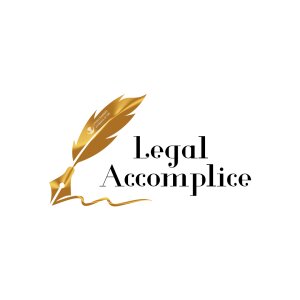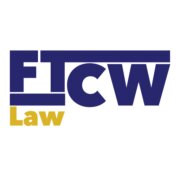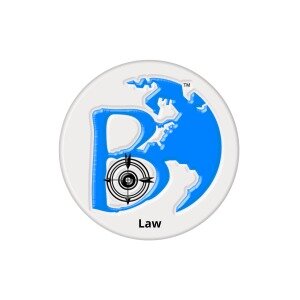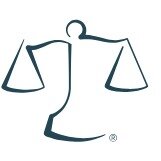Best Constitutional Law Lawyers in Jamaica
Share your needs with us, get contacted by law firms.
Free. Takes 2 min.
Or refine your search by selecting a city:
List of the best lawyers in Jamaica
About Constitutional Law in Jamaica:
Constitutional Law in Jamaica refers to the body of laws and regulations that govern the structure, powers, and responsibilities of the government, as well as the fundamental rights of individuals. The Constitution of Jamaica serves as the supreme law of the land, setting out the framework for the government and protecting the rights of its citizens.
Why You May Need a Lawyer:
You may need a lawyer in the field of Constitutional Law in Jamaica for various reasons, such as challenging the constitutionality of a law or government action, defending your rights in a legal dispute, seeking redress for a violation of your constitutional rights, or navigating complex legal procedures related to the Constitution. A lawyer specializing in Constitutional Law can provide valuable guidance and representation to protect your rights and interests.
Local Laws Overview:
In Jamaica, key aspects of local laws relevant to Constitutional Law include provisions related to fundamental rights and freedoms, the structure of government and its branches, the powers and functions of government institutions, the legal framework for elections and political processes, and mechanisms for constitutional interpretation and enforcement.
Frequently Asked Questions:
Q: What are fundamental rights in Jamaica's Constitution?
A: Fundamental rights in Jamaica's Constitution include the rights to life, liberty, security of the person, freedom of expression, freedom of religion, and equality before the law, among others.
Q: Can the government limit my fundamental rights?
A: Yes, the government can limit fundamental rights in certain circumstances, such as for public order, national security, or the protection of public health or morals. However, any restrictions must be reasonable and justifiable in a free and democratic society.
Q: How can I challenge a law as unconstitutional in Jamaica?
A: You can challenge a law as unconstitutional in Jamaica by filing a constitutional motion in the Supreme Court, arguing that the law violates the Constitution and seeking a declaration of its invalidity.
Q: What is the role of the Judicial Committee of the Privy Council in Jamaica?
A: The Judicial Committee of the Privy Council serves as Jamaica's final court of appeal, hearing cases on constitutional matters and legal issues. It plays a crucial role in interpreting and applying the Constitution of Jamaica.
Q: What is the process for amending the Constitution of Jamaica?
A: The Constitution of Jamaica can be amended through a special procedure that requires a two-thirds majority in both houses of Parliament, followed by approval in a national referendum. Certain provisions, such as those related to fundamental rights, have additional safeguards against amendment.
Q: Are there specialized courts for Constitutional Law cases in Jamaica?
A: Yes, the Constitutional Court in Jamaica hears cases involving constitutional issues, such as challenges to the constitutionality of laws, government actions, or administrative decisions. It plays a pivotal role in upholding the rule of law and protecting constitutional rights.
Q: How can I file a human rights complaint in Jamaica?
A: You can file a human rights complaint in Jamaica by lodging a petition with the Inter-American Commission on Human Rights or the United Nations Human Rights Committee, alleging a violation of your rights under international human rights treaties that Jamaica has ratified.
Q: What remedies are available for constitutional violations in Jamaica?
A: Remedies for constitutional violations in Jamaica may include declarations of invalidity, damages or compensation, injunctions, or orders for specific performance to enforce constitutional rights or obligations. The courts have broad powers to grant relief in cases of constitutional breaches.
Q: What is the relationship between international law and constitutional law in Jamaica?
A: International law can influence constitutional law in Jamaica through treaties, conventions, and customary international law that are incorporated into domestic law. Courts may consider international human rights standards in interpreting and applying the Constitution of Jamaica.
Q: How can I stay informed about developments in Constitutional Law in Jamaica?
A: You can stay informed about developments in Constitutional Law in Jamaica by following legal news, attending seminars or conferences on constitutional issues, reading scholarly articles or publications, and consulting with legal experts specializing in this field.
Additional Resources:
For additional resources on Constitutional Law in Jamaica, you may consider contacting the Jamaican Bar Association, the Office of the Director of Public Prosecutions, the Jamaica Council for Human Rights, or the Ministry of Justice for guidance and support.
Next Steps:
If you require legal assistance in Constitutional Law in Jamaica, you should consult with a qualified and experienced lawyer specializing in this field. They can assess your situation, provide tailored advice, represent you in legal proceedings, and help you navigate the complexities of Constitutional Law to protect your rights and interests effectively.
Lawzana helps you find the best lawyers and law firms in Jamaica through a curated and pre-screened list of qualified legal professionals. Our platform offers rankings and detailed profiles of attorneys and law firms, allowing you to compare based on practice areas, including Constitutional Law, experience, and client feedback.
Each profile includes a description of the firm's areas of practice, client reviews, team members and partners, year of establishment, spoken languages, office locations, contact information, social media presence, and any published articles or resources. Most firms on our platform speak English and are experienced in both local and international legal matters.
Get a quote from top-rated law firms in Jamaica — quickly, securely, and without unnecessary hassle.
Disclaimer:
The information provided on this page is for general informational purposes only and does not constitute legal advice. While we strive to ensure the accuracy and relevance of the content, legal information may change over time, and interpretations of the law can vary. You should always consult with a qualified legal professional for advice specific to your situation.
We disclaim all liability for actions taken or not taken based on the content of this page. If you believe any information is incorrect or outdated, please contact us, and we will review and update it where appropriate.
Browse constitutional law law firms by city in Jamaica
Refine your search by selecting a city.
















